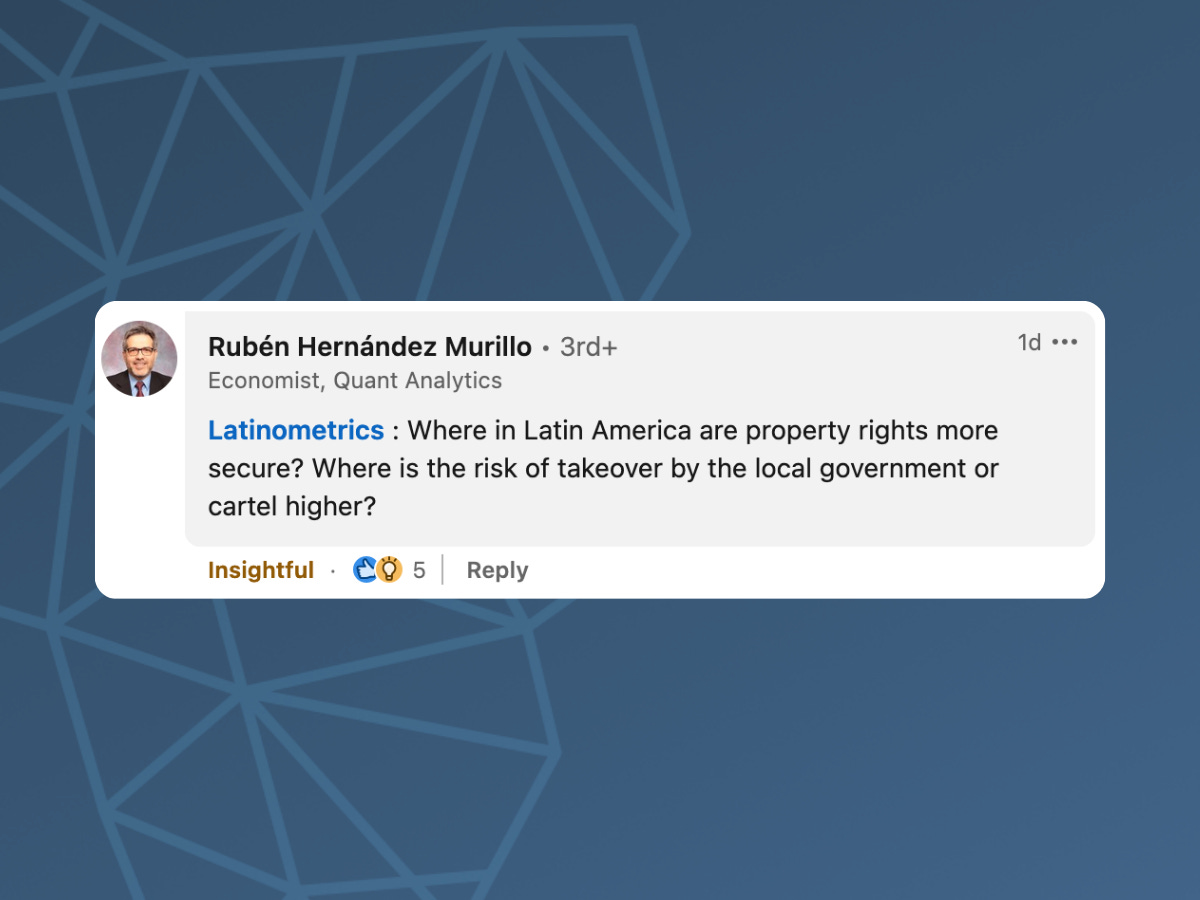📊 Firearm Ownership
Latin America’s gun rates are inconsistent within regions. What’s driving this strange policy divergence?
Welcome to Latinometrics. We bring you Latin American insights and trends through concise, thought-provoking data visualizations.
🌟 Note: we're starting to partner up with a select number of brands. To make the process easier, below is a form you can fill out if interested.
Firearms 🔫
Most people don't own a gun. The only place where that could be untrue is the United States, where there are more guns than civilians — 121 per 100 people. But even there, 32% of people are gun owners. In the case of Latin America, there's little appetite for them compared to the rest of the world. Uruguay stands as the region's only outlier, with 35 guns per 100 people, placing it sixth worldwide.
Perhaps gun culture is a regional thing, given Uruguay's regional peer, Paraguay is next on Latin America's ranking with 18 guns per 100. Gun smuggling or illegal gun ownership is a concern in both countries (and in all of Latin America); in the case of Paraguay, an estimated 66% of all firearms are unregistered, while Uruguay's number sits at about 50%.
Uruguay was a pioneer in passing laws that permitted the legal ownership of firearms in 1944. Guns in the country are not treated as an inalienable human right, as is the case in the US, but as a regulated privilege for self-defense or recreation.
So that raises the question: is Uruguay more violent because of guns?
A case could be made for that. Over half of all homicides in Uruguay are at gunpoint. And despite the country having the best quality of life in Latin America, its homicide rate in 2022 was 11 per 100K people. Though this is not terrible comparatively speaking, it stands in sharp contrast with its neighbors' homicide rates — Argentina's 4.2, Chile's 4.7, and Paraguay's 6.3.
Latinobarómetro's polls helped us examine a separate question: Does the desire for guns, which are often bought for self-defense, reflect distrust in others? You wouldn’t need a gun for self defense if you completely trust everyone around you, right?
Well, for starters, it's worth pointing out how low our region scores in interpersonal trust. Even in the most trusting country, Ecuador, only 23% of people assert that "most people can be trusted."
We plotted this same percentage to the ownership of handguns and found little to no correlation between the two. Despite Uruguay's super high gun ownership, it ranks 4th in interpersonal trust.
Contrastingly, Ecuador, is the most trusting and had the 3rd lowest ownership rate. And Brazil, which ranks at the other extreme as the most distrusting, has less than one-third of Uruguay's firearm ownership.
Some may see gun ownership as a sign of distrust of their fellow citizens, while others may see the need for banning guns in precisely the same way.
—
Comment of the Week 🗣️
Rubén Hernández Murillo asks an insightful question that will probably result in us making a chart about the topic. In response to our vacation real estate chart on LinkedIn.
Join the discussion on social media, where we’ll be posting today’s charts throughout the week. Follow us on Twitter, LinkedIn, Instagram, or Facebook.
Feedback or chart suggestions? Reply to this email, and let us know. 😁





The lack of consequences at least in Mexico’s case
“We plotted this same percentage to the ownership of handguns and found little to no correlation between the two.”
Huh? Exclude the red and yellow points, because they reflect government interference, and you get a pretty obvious relationship. It isn’t an incredibly strong relationship, but it’s there to the naked eyeball.